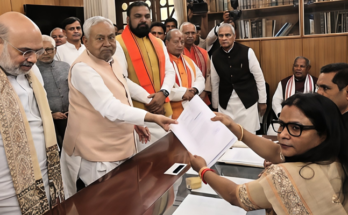New Delhi: India took a giant leap in its semiconductor mission with the unveiling of Vikram-32, the nation’s first indigenously developed 32-bit microprocessor, at Semicon India 2025. The chip, built by ISRO’s Semiconductor Laboratory (SCL), was formally handed over to Prime Minister Narendra Modi by Electronics and IT Minister Ashwini Vaishnaw.
Designed to power space launch vehicles, Vikram-32 has been engineered to withstand extreme conditions. Its inaugural batch, Vikram 3201, was successfully validated during the PSLV-C60 mission, marking India’s entry into the league of advanced chip-making nations.
Developed at SCL’s 180nm CMOS facility in Mohali, the processor’s 32-bit architecture enables high-speed calculations, large memory management, and complex instructions essential for satellites and rockets. Beyond space, it also has potential applications in defence, aerospace, automotive, and energy sectors.
Vaishnaw highlighted that India is rapidly expanding its chip ecosystem, with five semiconductor units under construction, 10 major projects worth ₹1.60 lakh crore approved across six states, and 23 startups supported under the Design Linked Incentive (DLI) scheme. “India today is a beacon of stability and growth in the global semiconductor industry,” he said.
The unveiling of Vikram-32 is seen not only as a technological breakthrough but also a symbol of India’s semiconductor self-reliance, positioning the country as a serious global contender.
The three-day Semicon India 2025 is showcasing India’s roadmap for building a resilient and sustainable semiconductor ecosystem, with Vikram-32 as its centrepiece.



